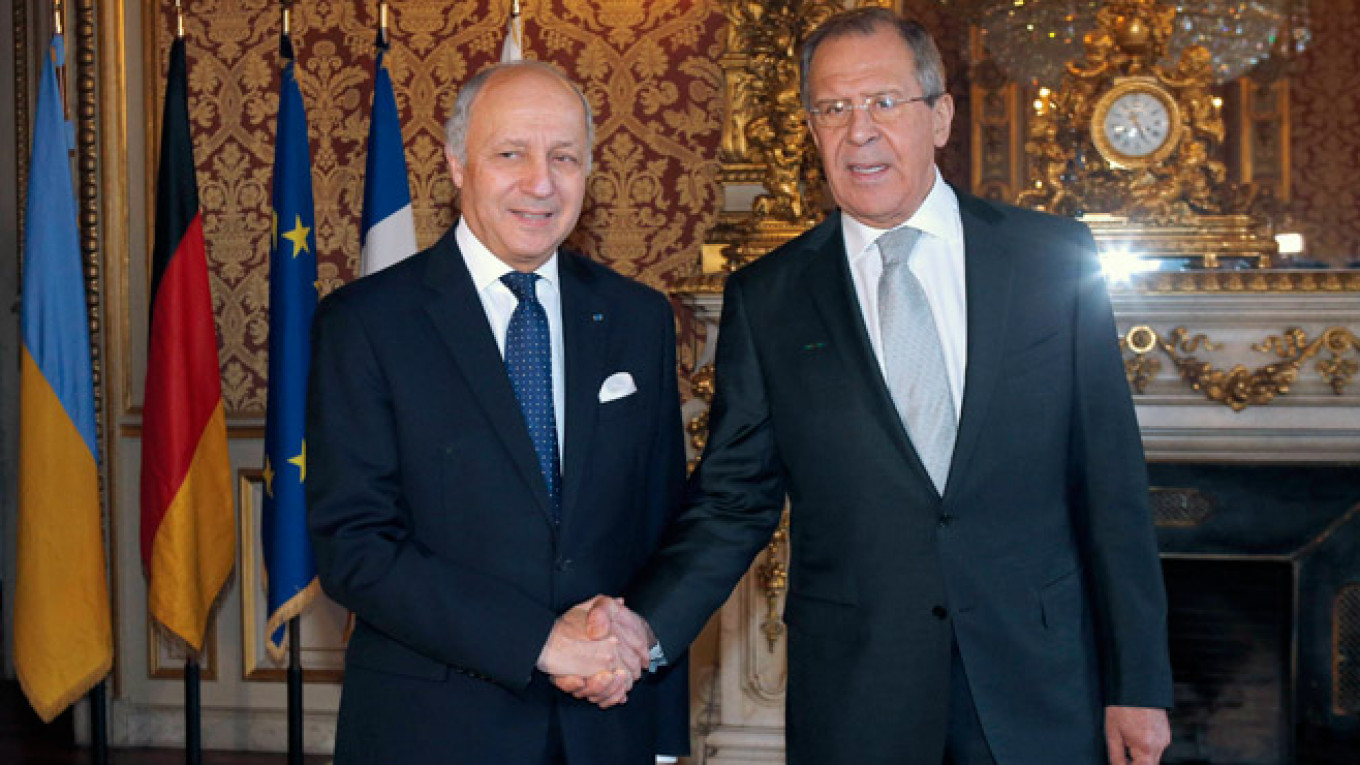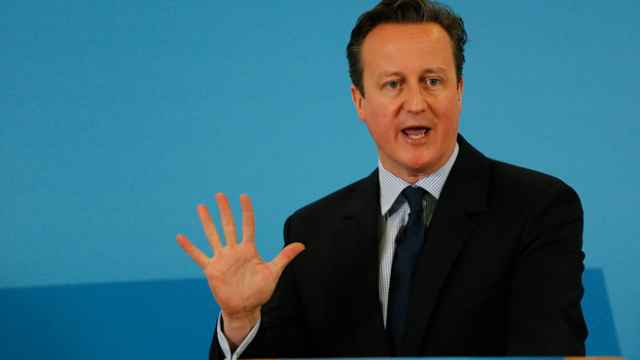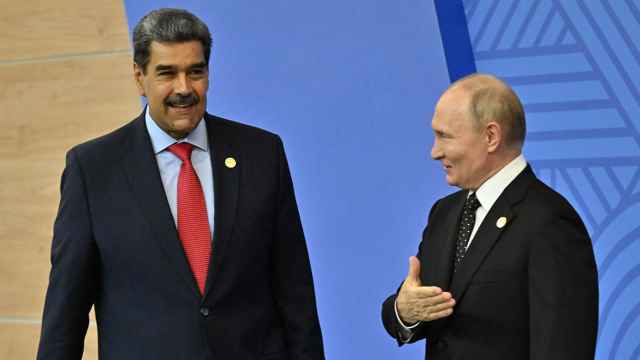MAKIIVKA, Ukraine — Pro-Russia separatists brought reporters on Tuesday to witness the withdrawal of heavy weapons from the front line in east Ukraine under a cease-fire deal, but Ukraine said the rebels were using the cover of the truce to reinforce for another advance.
Fighting has eased in eastern Ukraine in recent days, raising hope that a cease-fire due to start on Feb. 15 can finally take effect after the rebels initially ignored it to storm a government-held town last week.
Since taking the railway hub of Debaltseve in one of the worst defeats for Kiev of the war, the Moscow-backed rebels have indicated they now want to abide by the truce. Kiev says the rebels are still shooting, which the rebels deny.
Journalists in rebel-held territory watched 10 trucks carrying howitzers roll through Makiivka, near rebel-held Donetsk. Rebels said the guns were on their way from Donetsk towards Amvrosiyvka, a town far from the front and close to the Russian frontier.
Near Amvrosiyvka, journalists saw a second convoy carrying 14 howitzers, also heading toward the Russian border.
Rebel commander Eduard Basurin said 90 pieces of artillery would be withdrawn on Tuesday, and different of weapons would be pulled out on different days until all artillery was deployed away from the front in line with the peace deal.
There were no plans for any further military advances, he added: "That's it. We are going no further."
He said the rebels still aim to gain control of the entire territory of two rebellious provinces, including the government-held port of Mariupol, but would seek this through "negotiations with the Ukrainian side."
The Kiev military said rebel assertions they were pulling back guns were "empty words."
"On the contrary, the terrorist groups, making use of the cease-fire period, are reinforcing their units and building up ammunition."
Not Giving Up
Western countries have not given up on the cease-fire deal to end fighting that has killed more than 5,600 people, although they remain suspicious of the rebels and their presumed patron, Russian President Vladimir Putin.
Foreign ministers of Russia, Ukraine, France and Germany met in Paris on Tuesday and backed the cease-fire, pledging more resources to enable the OSCE security body to monitor it.
The rebels say they have observed the truce despite their massive assault last week, arguing that the cease-fire never applied to their target, the town of Debaltseve. Kiev and its Western allies say the assault was a brazen violation of the truce.
European countries have warned of new economic sanctions against Moscow if the rebels advance deeper into territory the Kremlin calls "New Russia." Washington says it could arm Kiev.
Sole Signal
Kiev's military said one of its soldiers had been killed and seven wounded in the past 24 hours, and repeated that it would not start pulling back weapons until shooting stopped.
"As soon as the fighters implement the cease-fire for two full days, that is the sole signal to start the withdrawal," military spokesman Andriy Lysenko said in a briefing, noting however that fighting had diminished.
Separatist press service DAN reported 10 incidents of government shelling near Donetsk.
However, Basurin denied Kiev's assertions that there were serious clashes in villages near Mariupol, saying there had been provocations from the Ukrainian side but no major incidents. Kiev fears Mariupol and its 500,000 people could be the next major rebel target.
Kiev and its Western allies say the rebels are funded and armed by Moscow, and backed by Russian military units. Moscow denies aiding sympathizers in Ukraine, and says heavily armed Russian-speaking troops operating without insignia there are not its men.
Asked if Moscow is lying when it denies sending men and material, U.S. Secretary of State John Kerry said, "Yes."
Putin, who has mainly struck a conciliatory tone since the rebels captured Debaltseve, said in a television interview he did not think Russia and Ukraine would go to war.
"I think that such an apocalyptic scenario is unlikely and I hope this will never happen," he said.
A Message from The Moscow Times:
Dear readers,
We are facing unprecedented challenges. Russia's Prosecutor General's Office has designated The Moscow Times as an "undesirable" organization, criminalizing our work and putting our staff at risk of prosecution. This follows our earlier unjust labeling as a "foreign agent."
These actions are direct attempts to silence independent journalism in Russia. The authorities claim our work "discredits the decisions of the Russian leadership." We see things differently: we strive to provide accurate, unbiased reporting on Russia.
We, the journalists of The Moscow Times, refuse to be silenced. But to continue our work, we need your help.
Your support, no matter how small, makes a world of difference. If you can, please support us monthly starting from just $2. It's quick to set up, and every contribution makes a significant impact.
By supporting The Moscow Times, you're defending open, independent journalism in the face of repression. Thank you for standing with us.
Remind me later.






